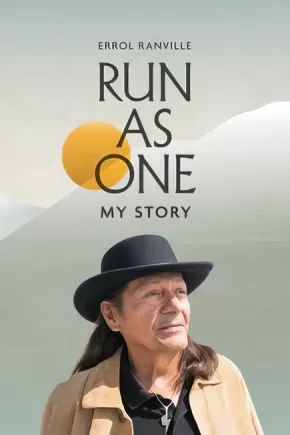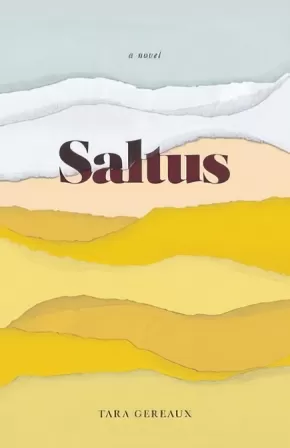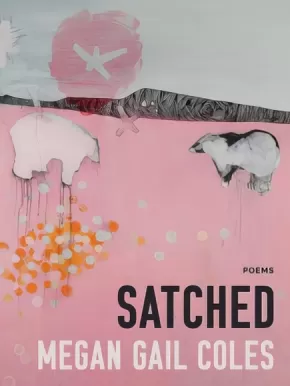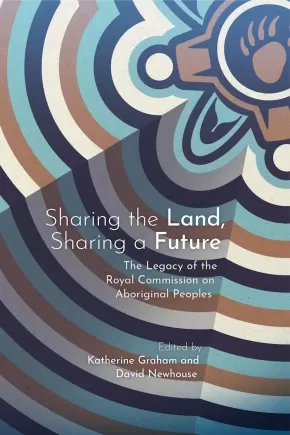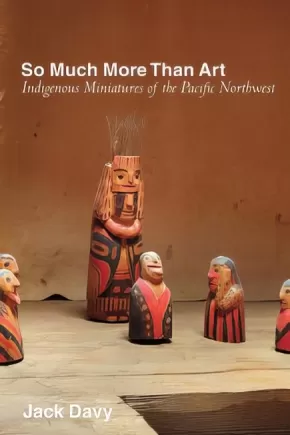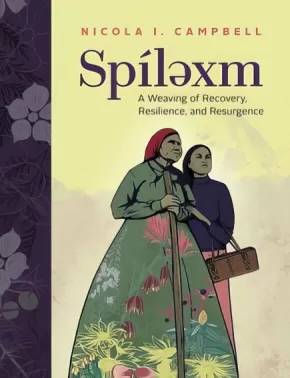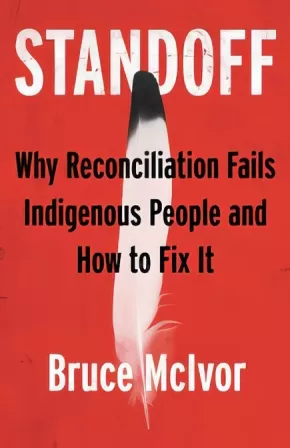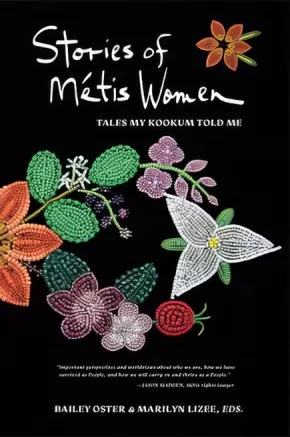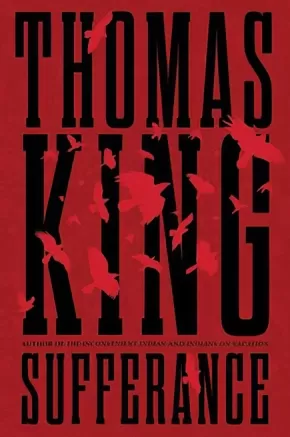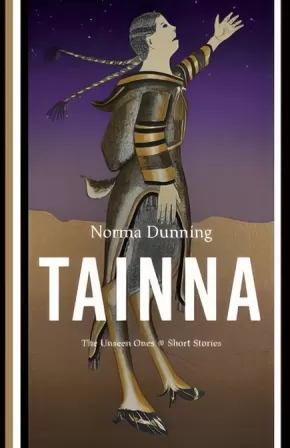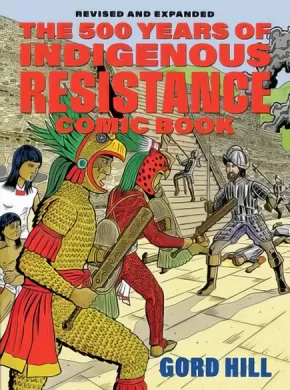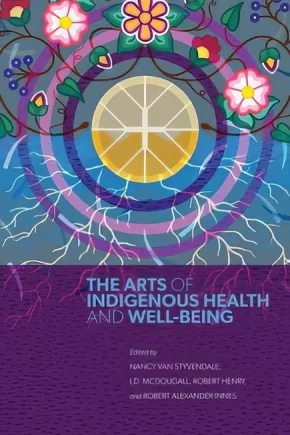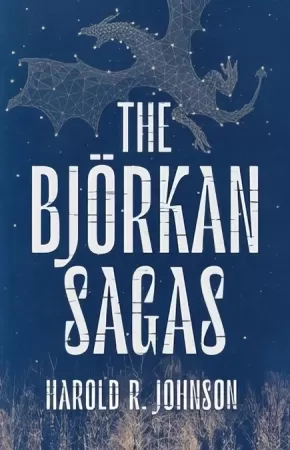
Indigenous Peoples in Canada
541
-
555
of
1085 Results;
Sort By
Go To
of 73
Run As One: My Story
$24.95
Format:
Paperback
Text Content Territories:
Indigenous Canadian;
Reading Level: N/A
ISBN / Barcode: 9781773370606
Synopsis:
Synopsis:
Errol Ranville has been running all his life: from chronic poverty and racism in rural Manitoba; a discriminatory music business; alcohol and drug addiction; and the responsibilities that come with being regarded as a role model. Though Errol has faced seemingly insurmountable barriers as an Indigenous performer in a predominately white music business, his band C-Weed & the Weeds released several #1 songs and went on to score JUNO nominations in 1985 and 1986. He was the recipient of the Lifetime Achievement Award at the Indigenous Music Awards in 2011. In his memoir Run as One, Errol embraces the role of trailblazer for the countless musicians that follow his path.
Reviews
"This is the story of how C-Weed became a legendary name in Indigenous music. Run As One traces the perseverance, heartbreak and inspiration that led Errol Ranville from extreme hardship to singing the soundtrack of so many of our lives." - Wab Kinew, author of The Reason You Walk
Additional Information
160 pages | 6.18" x 8.91"
Saltus
$22.95
Format:
Paperback
Text Content Territories:
Indigenous Canadian; Métis;
Reading Level: N/A
ISBN / Barcode: 9780889714007
Synopsis:
Synopsis:
Evocative of Miriam Toews’ A Complicated Kindness and Diane Warren’s Cool Water, Tara Gereaux’s novel, set in small-town Saskatchewan, dissects themes of Métis identity, female identity and motherhood, aging and regret, and finally, acceptance.
Nothing ever seems to happen in the small town of Saltus. At the Harvest Gold Inn and Restaurant off Highway 53, two waitresses spend their evening shifts delivering Salisbury steak specials and slices of pie to the regulars. But everything changes when Nadine, a headstrong single mother, and her teenager, Aaron, arrive at the Gold, where Aaron—who has repeatedly been denied appropriate gender-affirming medical care from the mainstream system—undergoes a near-fatal procedure performed by an unqualified and eccentric recluse who lives on the outskirts of Saltus.
The events that transpire that evening force each townsperson to look long and hard at themselves, at their own identities, and at the traumas and experiences that have shaped them. Told from multiple perspectives, Saltus reveals the complexities inherent in accepting the identities of loved ones, and the tragic consequences that unfold if they are ignored. It is a story about relationships with others, and, even more importantly, with ourselves.
Reviews
"Calm, measured and fearless, Gereaux skillfully, and with compassion, depicts a community in the aftermath of trauma. Based on true events, this work of fiction is both haunting and human. Gereaux’s strength is in her characters—you can’t help but feel their torments as if they were your own." — Lisa Bird-Wilson, February 2021
Additional Information
304 pages | 5.50" x 8.50" | Paperback
Satched
$19.99
Format:
Paperback
Text Content Territories:
Indigenous Canadian; First Nations; Mi'kmaq;
ISBN / Barcode: 9781487008949
Synopsis:
Synopsis:
Named after a local word meaning “soaked through” or “weighed down,” Scotiabank Giller Prize finalist Megan Gail Coles’s debut poetry collection, Satched, is a vivid portrait of intergenerational trauma, ecological grief, and late-stage capitalism from the perspective of a woman of rural-remote, Northern, working class, mixed ancestry.
Honest, penetrating, and often darkly comic, these poems explore the extraordinary will it requires to stay alive in the face of economic precariousness, growing inequality, and prevailing dissatisfaction. With a fierce dedication to place, the collection explores the conflict inherent to individualistic priorities and collective needs present in a hyper-commodified Newfoundland and Labrador. Satched demands compassionate advocacy for all as it resolutely strives for clarity and acceptance while celebrating the momentary glimpses of joy in the path toward shared values and resilience.
Reviews
“This collection trills of the [Newfoundland] region and its distinct speech … Coles creates an intimacy in Satched through her urban maritime lens and straightforward style.” — Quill & Quire
“Reading Satched is like drinking chilled wine with an old friend on a hot night, commiserating with love, gratitude, and mutual affection. It’s opening a second bottle, letting the kids fall asleep watching movies, and getting out the hidden cigarettes to really get into it. It’s a fist in the air before it’s aimed at an appropriate eyeball. It’s an exceptional accomplishment full of lyrical strength and poetic endurance.” — Katherena Vermette, author of river woman
“Are you ready for poems that pierce straight to the bone? Megan Gail Coles’s Satched is a razor edge of fierce truth, grim humour, and unalloyed beauty. With sharp-eyed clarity and fearless candour, Coles slices open the veils of capitalism and colonization to reveal a landscape marked by poverty and resilience, violence, and hope. This is Newfoundland and Labrador seen through the eyes of unconditional love and furious rage. The political, the personal, and the poetic interweave seamlessly in this debut collection, adding another genre to Coles’s already impressive repertoire. Satched is the kind of book we need right now, the kind that confronts the real world head-on while also teaching us how to live in it.” — Kai Cheng Thom, author of a place called No Homeland
“Satched is an acerbic, bold, and wise debut that susses out the subtle and sinister ways men infringe on women’s mental and physical spaces, the horrors of the climate crisis, and the pitfalls of economic precarity. With technical mastery and an immediately infectious tone, Coles inhabits the voices of Atlantic Canada, unearths the ways grief inhabits a place, and interrogates prevailing notions of resiliency. Coles intimates both how ‘our minds are poisoned against ourselves’ and the ways in which kinship offers a path to forge through the audaciousness of capital and insidiousness of colonialism. Reading Satched is like talking to your smartest, funniest friend, who wryly declares, ‘there is nothing and no one standing in your way, / except capitalism and global pandemics.’” — Cassidy McFadzean, author of Drolleries
“These poems tumble into me with a rage and beauty that is oceanic. I am satched to the core. Megan Gail Coles writes poems that ask us to reconsider historical and contemporary attitudes toward poverty, race, gender, and the environment, engaging her reader in ‘this present rowing over the past / to make up the future.’ Because while these poems speak deeply to intergenerational trauma, solastalgia, and the systemic ills of capitalism hidden in plain sight, they are forward-looking at heart. Satched puts forth that despite (or perhaps because of) our human frailties, we can begin again. These poems demonstrate that repair is possible, even from a rusty scaffold, if we are willing to reach beyond ourselves.” — Clea Roberts, author of Auguries
Additional Information
112 pages | 6.00" x 8.00" | Paperback
Sharing the Land, Sharing a Future: The Legacy of the Royal Commission on Aboriginal Peoples
$31.95
Editors:
Format:
Paperback
Text Content Territories:
Indigenous Canadian; First Nations; Inuit; Métis;
Grade Levels: University/College;
ISBN / Barcode: 9780887558689
Synopsis:
Synopsis:
Sharing the Land, Sharing a Future looks to both the past and the future as it examines the foundational work of the Royal Commission on Aboriginal Peoples (RCAP) and the legacy of its 1996 report. It assesses the Commission’s influence on subsequent milestones in Indigenous-Canada relations and considers our prospects for a constructive future.
RCAP’s five-year examination of the relationships of First Nations, Metis, and Inuit peoples to Canada and to non-Indigenous Canadians resulted in a new vision for Canada and provided 440 specific recommendations, many of which informed the subsequent work of the Truth and Reconciliation Commission of Canada (TRC). Considered too radical and difficult to implement, RCAP’s recommendations were largely ignored, but the TRC reiterates that longstanding inequalities and imbalances in Canada’s relationship with Indigenous peoples remain and quite literally calls us to action.
With reflections on RCAP’s legacy by its co-chairs, leaders of national Indigenous organizations and the Minister of Indigenous Crown Relations, and leading academics and activists, this collection refocuses our attention on the groundbreaking work already performed by RCAP. Organized thematically, it explores avenues by which we may establish a new relationship, build healthy and powerful communities, engage citizens, and move to action.
Reviews
"Sharing the Land, Sharing a Future provides a critical assessment of the limited progress made in implementing RCAP’s recommendations and consideration of the actions needed to move forward with the TRC’s Calls for Action – that might be a second chance to truly decolonize the situation of Indigenous peoples with homelands in the Canadian territory.” — Peter Russell
“In the current political landscape Sharing the Land, Sharing a Future is an important and necessary work that brings a wealth of scholarship into conversation with post RCAP and TRC realities. By centering the vision of RCAP and asserting decolonial pathways toward Indigenous sovereignty, it will trouble the notion of reconciliation and what that really means in a settler colonial state.” — Jennifer Brant
Educator Information
Other contributors: Marlene Brant Castellano, Frederic Wien, Frances Abele, Erin Alexiuk, Satsan (Herb George), Catherine MacQuarrie, Yvonne Boyer, Josée Lavoie, Derek Kornelson, Jeff Reading, René Dussault, Georges Erasmus, Perry Bellegarde, Natan Obed, Clément Chartier, Robert Bertrand, Carolyn Bennett, Francyne Joe, Jo-ann Archibald (Q’um Q’um Xiiem) Jan Hare, Jennifer S. Dockstator, Jeff S. Denis, Gérard Duhaime, Mark S. Dockstator, Wanda Wuttunee, Charlotte Loppie, John Loxley, Warren Weir, Caroline L. Tait, Devon Napope, Amy Bombay, William Mussell, Carrie Bourassa, Eric Oleson, Sibyl Diver, Janet McElhaney, Cindy Blackstock, Jonathan Dewar, Lynne Davis, Chris Hiller, Aaron Franks, Daniel Salée, Carole Lévesque, Michael Adams
Table of Contents
Chapter 1: Completing Confederation: The Necessary Foundation
Chapter 2: Twenty Years Later: The RCAP Legacy in Indigenous Health System Governance—What about the Next Twenty?
Chapter 3: Address by René Dussault, Co-Chair, Royal Commission on Aboriginal Peoples
Chapter 4: Video Address by Georges Erasmus, Co-Chair, Royal Commission on Aboriginal Peoples
Chapter 5: Address by Perry Bellegarde, National Chief, Assembly of First Nations
Chapter 6: Address by Natan Obed, President, Inuit Tapiriit Kanatami
Chapter 7: Address by Clément Chartier, President, Metis National Council
Chapter 8: Address by Robert Bertrand, National Chief, Congress of Aboriginal Peoples
Chapter 9: Address by Francyne Joe, President, Native Women’s Association of Canada
Chapter 10: Address by Carolyn Bennett, Minister of Indigenous and Northern Affairs Canada
Chapter 11: Thunderbird Is Rising: Indigenizing Education in Canada
Chapter 12: Insights into Community Development in First Nations: A Poverty Action Research
Chapter 13: Indigenous Economic Development with Tenacity
Chapter 14: Powerful Communities, Healthy Communities: A Twenty-Five Year Journey of Healing and Wellness
Chapter 15: Cultural Safety
Chapter 16: What Will It Take? Ending the Canadian Government’s Chronic Failure to Do Better for First Nations Children and Families
Chapter 17: The Art of Healing and Reconciliation: From Time Immemorial through RCAP, the TRC, and Beyond
Chapter 18: Engaging Citizens in Indigenous-Non-Indigenous Relations
Chapter 19: SSHRC and the Conscientious Community: Reflecting and Acting on Indigenous Research and Reconciliation in Response to CTA
Chapter 20: Canada’s Aboriginal Policy and the Politics of Ambivalence: A Policy Tools Perspective
Chapter 21: Executive Summary, Canadian Public Opinion on Aboriginal Peoples
Conclusion: What’s the Way Forward?
Additional Information
504 pages | 6.00" x 9.00"
sînapân kîskasâkâs: A Guide to Making Contemporary-Style Métis Ribbon Skirts
$24.95
Format:
Paperback
Text Content Territories:
Indigenous Canadian; Métis;
ISBN / Barcode: 9781926795966
Synopsis:
Synopsis:
sînapân kîskasâkâs: A Guide to Making Contemporary-Style Métis Ribbon Skirts will assist you in the creation of your own Métis style ribbon skirt. Authors, Bonny Johnson and Leah Marie Dorion guide you through the process with detailed instructions which are accompanied by photographs of each step. This resource comes with a companion DVD, and introductions from both authors on the historical and contemporary uses of these traditional Métis style ribbon skirts.
Educator Information
Grade Level: Secondary, Post Secondary, Adult
So Much More Than Art: Indigenous Miniatures of the Pacific Northwest
$89.95
Format:
Hardcover
Text Content Territories:
Indigenous Canadian;
ISBN / Barcode: 9780774866552
Synopsis:
Synopsis:
Miniature canoes, houses and totems, and human figurines have been produced on the Northwest Coast since at least the sixteenth century. What motivates Indigenous artists to produce these tiny artworks? Are they curios, toys, art, or something else?
So Much More Than Art is an original exploration of this intricate cultural pursuit. Through case studies and conversations with contemporary Indigenous artists, Jack Davy uncovers the ways in which miniaturization has functioned as a subtle form of communication and, since contact, resistance in the face of aggressive colonization. His interviewees dismiss the persistent assertion running through studies of material culture that miniatures were no more than toys for children or souvenir trinkets. They are in fact crucial components of satirical opposition to colonial government, preservation of traditional techniques, and political and legal negotiation.
This nuanced study of a hitherto misunderstood practice convincingly demonstrates the importance of miniaturization as a technique for communicating complex cultural ideas between generations and communities, and across the divide that separates Indigenous and settler societies. So Much More Than Art is also a testament to the resilience of the Indigenous peoples of the Northwest Coast.
Students and scholars of anthropology, museum studies, Indigenous studies, and art history will find this work a valuable addition to their libraries, as will museum, arts, and heritage professionals.
Reviews
"So Much More Than Art goes beyond other studies by demonstrating how Northwest Coast Indigenous artists use and have used miniaturization not only as an artistic practice but in provoking interventions in social relations and as a strategy of communication and resistance in the face of colonialism." — Karen Duffek, curator, Contemporary Visual Arts and Pacific Northwest, Museum of Anthropology at UBC
"Drawing heavily on the knowledge and opinions of Indigenous experts from communities all along the coast, Jack Davy invites us to think more critically about Northwest Coast miniatures, and leaves us with a framework with which to do so." — Kaitlin McCormick, curator, Western Ethnology, Canadian Museum of History
Educator Information
Table of Contents
Introduction
1 Practice and Play: The Makah
2 The Haida String: Northern Peoples
3 Tiny Dancers and Idiot Sticks: The Kwakwaka’wakw
4 Small Foundations: Tulalip Tribes
5 An Elemental Theory of Miniaturization
6 Analysis of Technique and Status
7 Miniature Realities
Notes; References; Index
Additional Information
224 pages | 6.00" x 9.00" | 21 Photographys, 7 Tables, 2 Charts/Diagrams | Hardcover
Spílexm: A Weaving of Recovery, Resilience, and Resurgence
$32.00
Format:
Hardcover
Text Content Territories:
Indigenous Canadian; First Nations; Salish; Interior Salish; Nlaka'pamux (Thompson); Syilx (Okanagan); Métis;
Grade Levels: 12; University/College;
ISBN / Barcode: 9781553799351
Synopsis:
Synopsis:
In this extraordinary memoir, best-selling author Nicola I. Campbell deftly weaves rich poetry and vivid prose into a story basket of memories orating what it means to be an intergenerational survivor of Indian Residential Schools.
If the hurt and grief we carry is a woven blanket, it is time to weave ourselves anew. We can’t quit. Instead, we must untangle ourselves from the negative forces that have impacted our existence as Indigenous people.
Similar to the “moccasin telegraph,” Spíləxm are the remembered stories, also “events or news” in the Nłeʔkepmx language. These stories were often shared over tea, in the quiet hours between Elders. Rooted within the British Columbia landscape, and with an almost tactile representation of being on the land and water, Spíləxm explores resilience, reconnection, and narrative memory through stories.
Captivating and deeply moving, this exceptional memoir tells of one Indigenous woman’s journey of overcoming adversity and colonial trauma to find strength and resilience through creative works and traditional perspectives of healing, transformation, and resurgence.
Reviews
"This is a terrific tale, peppered with some lovely poetry and deep philosophical convictions: raise your arms in strength and humility. The Nations of British Columbia practise this every day. We commit to strength and humility. We are humble before Star Nations and strong for one another. Nicola Campbell gets this. She is descended from two distinct Indigenous peoples: those that hold their arms and those that serve one another. Nicola braids these two cultures together and bequeaths the result to all of us and to the world. Loaded with history, rich in story, and lovely in its poetics." — Si’Yam, Lee Maracle, author
Additional Information
304 pages | 6.50" x 8.50" | Hardcover
Standoff: Why Reconciliation Fails Indigenous People and How to Fix It
$21.95
Format:
Paperback
Text Content Territories:
Indigenous Canadian;
Grade Levels: University/College;
ISBN / Barcode: 9780889714205
Synopsis:
Synopsis:
Faced with a constant stream of news reports of standoffs and confrontations, Canada’s “reconciliation project” has obviously gone off the rails. In this series of concise and thoughtful essays, lawyer and historian Bruce McIvor explains why reconciliation with Indigenous peoples is failing and what needs to be done to fix it.
Widely known as a passionate advocate for Indigenous rights, McIvor reports from the front lines of legal and political disputes that have gripped the nation. From Wet’suwet’en opposition to a pipeline in northern British Columbia, to Mi’kmaw exercising their fishing rights in Nova Scotia, McIvor has been actively involved in advising First Nation clients, fielding industry and non-Indigenous opposition to true reconciliation, and explaining to government officials why their policies are failing.
McIvor’s essays are honest and heartfelt. In clear, plain language he explains the historical and social forces that underpin the development of Indigenous law, criticizes the current legal shortcomings and charts a practical, principled way forward.
By weaving in personal stories of growing up Métis on the fringes of the Peguis First Nation in Manitoba and representing First Nations in court and negotiations, McIvor brings to life the human side of the law and politics surrounding Indigenous peoples’ ongoing struggle for fairness and justice. His writing covers many of the most important issues that have become part of a national dialogue, including systemic racism, treaty rights, violence against Indigenous people, Métis identity, the United Nations Declaration on the Rights of Indigenous People (UNDRIP) and the duty to consult.
McIvor’s message is consistent and powerful: if Canadians are brave enough to confront the reality of the country’s colonialist past and present and insist that politicians replace empty promises with concrete, meaningful change, there is a realistic path forward based on respect, recognition and the implementation of Indigenous rights.
Additional Information
208 pages | 5.50" x 8.50" | Paperback
Stories of Metis Women: Tales My Kookum Told Me
$35.00
Editors:
Format:
Paperback
Text Content Territories:
Indigenous Canadian; Métis;
Reading Level: N/A
ISBN / Barcode: 9781988824215
Synopsis:
Synopsis:
This book, and accompanying Vimeo documentary link, is a collection of stories about culture, history, and nationhood as told by Métis women. The Métis are known by many names — Otipemisiwak, “the people who own ourselves;” Bois Brules, “Burnt Wood;” Apeetogosan, “half brother” by the Cree; “half-breed,” historically; and are also known as “rebels” and “traitors to Canada.” They are also known as the “Forgotten People.” Few really know their story.
Many people may also think that Métis simply means “mixed,” but it does not. They are a people with a unique and proud history and Nation. In this era of reconciliation, Stories of Métis Women explains the story of the Métis Nation from their own perspective. The UN has declared this “The Decade of Indigenous Languages” and Stories of Métis Women is one of the few books available in English and Michif, which is an endangered language.
Reviews
"With this book, some of these important and unique perspectives and worldviews about who we are as a people, how we have survived as people and how we will carry on and thrive as a people are shared through the writings of the daughters, mothers, aunties and grandmothers of the Métis Nation. I congratulate the Métis women who have taken the time to share and write down some of this knowledge for generations to come." —Jason Madden, Métis rights lawyer and citizen of the Métis Nation
Additional Information
240 pages | 6.00" x 9.00" | 50 black and white illustrations | Paperback
Sufferance: A Novel (HC) (2 in Stock)
$32.00
Format:
Hardcover
Text Content Territories:
Indigenous Canadian;
ISBN / Barcode: 9781443463102
Synopsis:
Synopsis:
Jeremiah Camp, a.k.a. the Forecaster, can look into the heart of humanity and see the patterns that create opportunities and profits for the rich and powerful. Problem is, Camp has looked one too many times, has seen what he hadn’t expected to see and has come away from the abyss with no hope for himself or for the future.
So Jeremiah does what any intelligent, sensitive person would do. He runs away. Goes into hiding in a small town, at an old residential school on an even smaller Indian reserve, with no phone, no Internet, no television. With the windows shut, the door locked, the mailbox removed to discourage any connection with the world, he feels safe at last. Except nobody told the locals that they were to leave Jeremiah alone.
And then his past comes calling. Ash Locken, head of the Locken Group, the multinational consortium that Jeremiah has fled, arrives on his doorstep with a simple proposition. She wants our hero to formulate one more forecast, and she’s not about to take no for an answer. Before he left the Locken empire, Jeremiah had created a list of twelve names, every one a billionaire. The problem is, the people on the list are dying at an alarming and unnatural rate. And Ash Locken wants to know why.
A sly and satirical look at the fractures in modern existence, Sufferance is a bold and provocative novel about the social and political consequences of the inequality created by privilege and power—and what we might do about it.
Additional Information
320 pages | 6.00" x 9.00"
Tainna: The Unseen Ones, Short Stories
$19.95
Format:
Paperback
Text Content Territories:
Indigenous Canadian; Inuit;
ISBN / Barcode: 9781771622714
Synopsis:
Synopsis:
Drawing on both lived experience and cultural memory, Norma Dunning brings together six powerful new short stories centred on modern-day Inuk characters in Tainna. Ranging from homeless to extravagantly wealthy, from spiritual to jaded, young to elderly, and even from alive to deceased, Dunning’s characters are united by shared feelings of alienation, displacement and loneliness resulting from their experiences in southern Canada.
In Tainna—meaning “the unseen ones” and pronounced Da‑e‑nn‑a—a fraught reunion between sisters Sila and Amak ends in an uneasy understanding. From the spirit realm, Chevy Bass watches over his imperilled grandson, Kunak. And in the title story, the broken-hearted Bunny wanders onto a golf course on a freezing night, when a flock of geese stand vigil until her body is discovered by a kind stranger.
Norma Dunning’s masterful storytelling uses humour and incisive detail to create compelling characters who discover themselves in a hostile land where prejudice, misogyny and inequity are most often found hidden in plain sight. There, they must rely on their wits, artistic talent, senses of humour and spirituality for survival; and there, too, they find solace in shining moments of reconnection with their families and communities.
Awards
- 2021 Governor General's Literary Award for English-language fiction
Additional Information
160 pages | 5.50" x 8.50"
The 500 Years of Indigenous Resistance Comic Book: Revised and Expanded
$21.95
Artists:
Format:
Paperback
Text Content Territories:
Indigenous American; Indigenous Canadian; Indigenous Central American; Indigenous South American;
ISBN / Barcode: 9781551528526
Synopsis:
Synopsis:
A new and expanded version of Gord Hill's seminal illustrated history of Indigenous struggles in the Americas. When it was first published in 2010, The 500 Years of Resistance Comic Book was heralded as a groundbreaking illustrated history of Indigenous activism and resistance in the Americas over the previous 500 years, from contact to present day. Eleven years later, author and artist Gord Hill has revised and expanded the book, which is now available in colour for the first time.
The 500 Years of Indigenous Resistance Comic Book powerfully portrays flashpoints in history when Indigenous peoples have risen up and fought back against colonizers and other oppressors. Events depicted include the the Spanish conquest of the Aztec, Mayan and Inca empires; the 1680 Pueblo Revolt in New Mexico; the Battle of Wounded Knee in 1890; the resistance of the Great Plains peoples in the 19th century; and more recently, the Idle No More protests supporting Indigenous sovereignty and rights in 2012 and 2013, and the resistance to the Dakota Access Pipeline in 2016. Canadian events depicted include the Oka crisis in 1990, the Grand River land dispute between Six Nations and the Government of Canada in 2006, and the Wet'suwet'en anti-pipeline protests in 2020.
With strong, plain language and evocative illustrations, this revised and expanded edition of The 500 Years of Indigenous Resistance Comic Book reveals the tenacity and perseverance of Indigenous peoples as they endured 500-plus years of genocide, massacre, torture, rape, displacement, and assimilation: a necessary antidote to conventional histories of the Americas.
The book includes a foreword by Pamela Palmater, a Mi'kmaq lawyer, professor, and political commentator.
Reviews
"Gord Hill's goal of giving indigenous peoples a better understanding of their past so as to counter the benign version all too often taught in schools and presented in the media makes the format [of his work] the perfect vehicle for his hard-hitting message."-BC Studies
"Gord Hill has put colonial myth-makers on notice with a comic that educates and inspires." - The St'at'imc Runner
"Comics aren't always known for treating serious subjects, but Gord Hill's The 500 Years of Resistance Comic Book adds a dose of reality to the genre. Hill, of the Kwakwaka'wakw nation, has taken the topics of dispossession, genocide, and the colonization of First Nations in the western hemisphere and, surprisingly, pulled off a rendering in comic book form." -Dissident Voice
"Never before have I come across a non-fiction graphic novel capable of evoking such a powerful emotional response. Dealing with such topics as genocide, oppression and assimilation the comic is sure to cause frustration and sadness in the reader. At the same time, 500 Years of Resistance is inspirational and empowering, accurately depicting the strength and nobility of Native warriors. Gord's straightforward approach to writing coupled with his iconic illustrations has created a truly groundbreaking comic book." -Redwire Media
"An excellent introduction to the tremendous historical and ongoing legacy of resistance on the part of Indigenous peoples in Canada and elsewhere in the continent against the settler colonial regimes that continue to oppress and exploit." -Popmatters. com
Educator Information
This book is available in French: 500 ans de résistance autochtone
Additional Information
144 pages | 9.00" x 12.00" | Comic Book | Colour Illustrations Throughout
The Arts of Indigenous Health and Well-Being
$27.95
Editors:
Format:
Paperback
Text Content Territories:
Indigenous Canadian;
Grade Levels: University/College;
ISBN / Barcode: 9780887559396
Synopsis:
Synopsis:
Drawing attention to the ways in which creative practices are essential to the health, well-being, and healing of Indigenous peoples, The Arts of Indigenous Health and Well-Being addresses the effects of artistic endeavour on the “good life”, or mino-pimatisiwin in Cree, which can be described as the balanced interconnection of physical, emotional, spiritual, and mental well-being. In this interdisciplinary collection, Indigenous knowledges inform an approach to health as a wider set of relations that are central to well-being, wherein artistic expression furthers cultural continuity and resilience, community connection, and kinship to push back against forces of fracture and disruption imposed by colonialism.
The need for healing—not only individuals but health systems and practices—is clear, especially as the trauma of colonialism is continually revealed and perpetuated within health systems. The field of Indigenous health has recently begun to recognize the fundamental connection between creative expression and well-being. This book brings together scholarship by humanities scholars, social scientists, artists, and those holding experiential knowledge from across Turtle Island to add urgently needed perspectives to this conversation. Contributors embrace a diverse range of research methods, including community-engaged scholarship with Indigenous youth, artists, Elders, and language keepers.
The Arts of Indigenous Health and Well-Being demonstrates the healing possibilities of Indigenous works of art, literature, film, and music from a diversity of Indigenous peoples and arts traditions. This book will resonate with health practitioners, community members, and any who recognize the power of art as a window, an entryway to access a healthy and good life.
Reviews
“There is a genuinely beautiful life-force at work in this text: it’s artful and creative, readable and forceful. The objectives and scholarship throughout The Arts of Indigenous Health and Wellbeing are clear, grounded, rigorous and likely to make important contributions to knowledge and conversations about Indigenous health and the humanities in times and space of contemporary coloniality.” — Sarah de Leeuw
"The unique content of The Arts of Indigenous Health and Wellbeing may be useful for communities to heal, and to preserve cultural and traditional knowledge that can be passed down in the written form. The content can spark dialogue and learning by being discussed and used by families, generations, health providers/healers and a wide array of learners.”— Margot Latimer
Educator Information
Table of Contents
Ch 1: What This Pouch Holds
Ch 2: Baskets, Birchbark Scrolls, and Maps of Land: Indigenous Making Practices as Oral Historiography
Ch 3: For Kaydence and her Cousins: Health and Happiness in Cultural Legacies and Contemporary Contexts
Ch 4: Stories and Staying Power: Art-Making as (Re)Source of Cultural Resilience and Well-Being for Panniqtumiut
Ch 5: Healthy Connections: Facilitators’ Perceptions of Programming Linking Arts and Wellness with Indigenous Youth
Ch 6: Narrating Relations: Genetic Ancestry Testing and Alternarratives of Queer Kinship
Ch 7: The Doubleness of Sound in Canada’s Indian Residential Schools
Ch 8 Kissed by Lightning: Mediating Haudenosaunee Traditional Teachings through Film
Ch 9: Minobimaadiziwinke (Creating a Good Life): Native Bodies Healing
Ch 10: Body Counts: War, Pesticides and Queer Spirituality in Cherríe Moraga’s Heroes and Saints
Ch 11: “The Song of the Starved Soul”
Ch 12 Sakihiwawin: Land’s Overflow into the space-tial “Otherwise”
Additional Information
240 pages | 6.00" x 9.00" | Paperback
The Björkan Sagas
$24.99
Format:
Hardcover
Text Content Territories:
Indigenous;
Reading Level: N/A
ISBN / Barcode: 9781487009809
Synopsis:
Synopsis:
Drawing upon his Cree and Scandinavian roots, Harold R. Johnson merges myth, fantasy, and history in this epic saga of exploration and adventure.
While sorting through the possessions of his recently deceased neighbour, Harold Johnson discovers an old, handwritten manuscript containing epic stories composed in an obscure Swedish dialect. Together, they form The Björkan Sagas.
The first saga tells of three Björkans, led by Juha the storyteller, who set out from their valley to discover what lies beyond its borders. Their quest brings them into contact with the devious story-trader Anthony de Marchand, a group of gun-toting aliens in search of Heaven, and an ethereal Medicine Woman named Lilly. In the second saga, Juha is called upon to protect his people from invaders bent on stealing the secrets contained within the valley’s sacred trees. The third saga chronicles the journey of Lilly as she travels across the universe to bring aid to Juha and the Björkans, who face their deadliest enemy yet.
The Björkan Sagas is a bold, innovative fusion of narrative traditions set in an enchanted world of heroic storytellers, shrieking Valkyries, and fire-breathing dragons.
Additional Information
176 pages | 5.00" x 7.75" | Hardcover
The Gatherings: Reimagining Indigenous-Settler Relations (HC) (1 in Stock)
$29.95
Format:
Hardcover
Text Content Territories:
Indigenous Canadian; First Nations; Abenaki (Wabanaki); Indigenous American; Native American; Abenaki (Wabanaki);
Grade Levels: University/College;
ISBN / Barcode: 9781487508951
Synopsis:
Synopsis:
In a world that requires knowledge and wisdom to address developing crises around us, The Gatherings shows how Indigenous and non-Indigenous peoples can come together to create meaningful and lasting relationships.
Thirty years ago, in Wabanaki territory – a region encompassing the state of Maine and the Canadian Maritimes – a group of Indigenous and non-Indigenous individuals came together to explore some of the most pressing questions at the heart of Truth and Healing efforts in the United States and Canada. Meeting over several years in long-weekend gatherings, in a Wabanaki-led traditional Council format, assumptions were challenged, perspectives upended, and stereotypes shattered. Alliances and friendships were formed that endure to this day.
The Gatherings tells the moving story of these meetings in the words of both Indigenous and non-Indigenous participants. Reuniting to reflect on how their lives were changed by their experiences and how they continue to be impacted by them, the participants share the valuable lessons they learned.
The many voices represented in The Gatherings offer insights and strategies that can inform change at the individual, group, and systems levels. These voices affirm that authentic relationships between Indigenous and non-Indigenous peoples – with their attendant anxieties, guilt, anger, embarrassments, and, with time, even laughter and mutual affection – are key to our shared futures here in North America. Now, more than ever, it is critical that we come together to reimagine.
Reviews
“Very impressive. The contributions of these men and women are noteworthy and deserve to be read and available to all persons who are interested and want to learn from them.” — The Hon. Graydon Nicholas, Chancellor and Endowed Chair in Native Studies, St. Thomas University, and Former Lieutenant Governor of New Brunswick
“Shirley N. Hager’s gentle and affirming spirit shines through as she introduces the reader to this unique, collective experience. I felt so much gratitude for each participant, opening themselves to let strangers in.” — Beth Clifford, Curriculum Coordinator, Maine Indian Education
“I had intended to only take a quick look at the book and come back to it later, but once I started reading I couldn’t stop. The Gatherings is a very well-constructed book of great importance both as a cultural document and as a tool for teaching and learning.”
— Keith Helmuth, Founding Trustee of Quaker Institute for the Future and Author of Tracking Down Ecological Guidance: Presence, Beauty, Survival
“The Gatherings calls me back to the deepest roots of my own faith tradition. Several times it brought me to tears. There is deep healing here, and truth, and an even deeper love.” — Holly Wilkinson, Executive Director, WholeHeart, Inc.
Educator Information
Mawopiyane
Gwen Bear
The Reverend Shirley Bowen
Alma H. Brooks/Zapawey-kwey
gkisedtanamoogk
JoAnn Hughes
Debbie Leighton
Barb Martin
Miigam’agan
T. Dana Mitchell
Wayne A. Newell
Betty Peterson
Marilyn Keyes Roper
Wesley Rothermel
Afterword by Dr. Frances Hancock
To reflect the collaborative nature of this project, the word Mawopiyane is used to describe the full group of co-authors. Mawopiyane, in Passamaquoddy, literally means "let us sit together," but the deeper meaning is of a group coming together, as in the longhouse, to struggle with a sensitive or divisive issue – but one with a very desirable outcome. It is a healing word and one that is recognizable in all Wabanaki languages.
Table of Contents
Foreword
With Gratitude
Notes on Terminology
Introduction
Gathering
The Talking Circle
Miigam’agan
Wayne
Gwen
Dana
Alma
Barb
gkisedtanamoogk
Shirley H.
Debbie
Shirley B.
Wesley
Marilyn
Betty
JoAnn
The Last Gathering
The Decision
Hindsight
The Gatherings: May 1987 to May 1993
Creating This Book
The Giveaway Blanket
The Circle and Ceremony
The Circle and Decision Making
Ceremony: Protect or Share It?
Allies, Friends, Family
Beginnings
The Women Compare Notes
The Relationship Evolves
Mutuality
How We Got Here
The Doctrine of Discovery
But What about the Treaties?
The Personal Is Political
Economic Self-Determination
Beginning to Make Amends
Some Progress ... and a Long Way to Go
How It Could Be Different
Being Here Legitimately
Acknowledging First Peoples/Honoring the Treaties
An Indigenous Worldview
The Need for Gathering Spaces
Creating a Gathering Space
Working Together on a Cause
Humility versus “White Guilt”
Non-Natives Working with Our Own People
Entering the Longhouse
Being in the Relationship: An Afterword by Dr. Frances Hancock
Appendix: How This Book Came to Be
Notes
Suggested Resources
Contributors
Map: Location of the Gatherings
Reader’s Guide
Index
Additional Information
304 pages | 6.00" x 9.00" | 23 illustrations
Authenticity Note: This book's contributors are Indigenous and non-Indigenous. Readers must determine if this works as an authentic Indigenous work for their purposes.
Sort By
Go To
of 73

